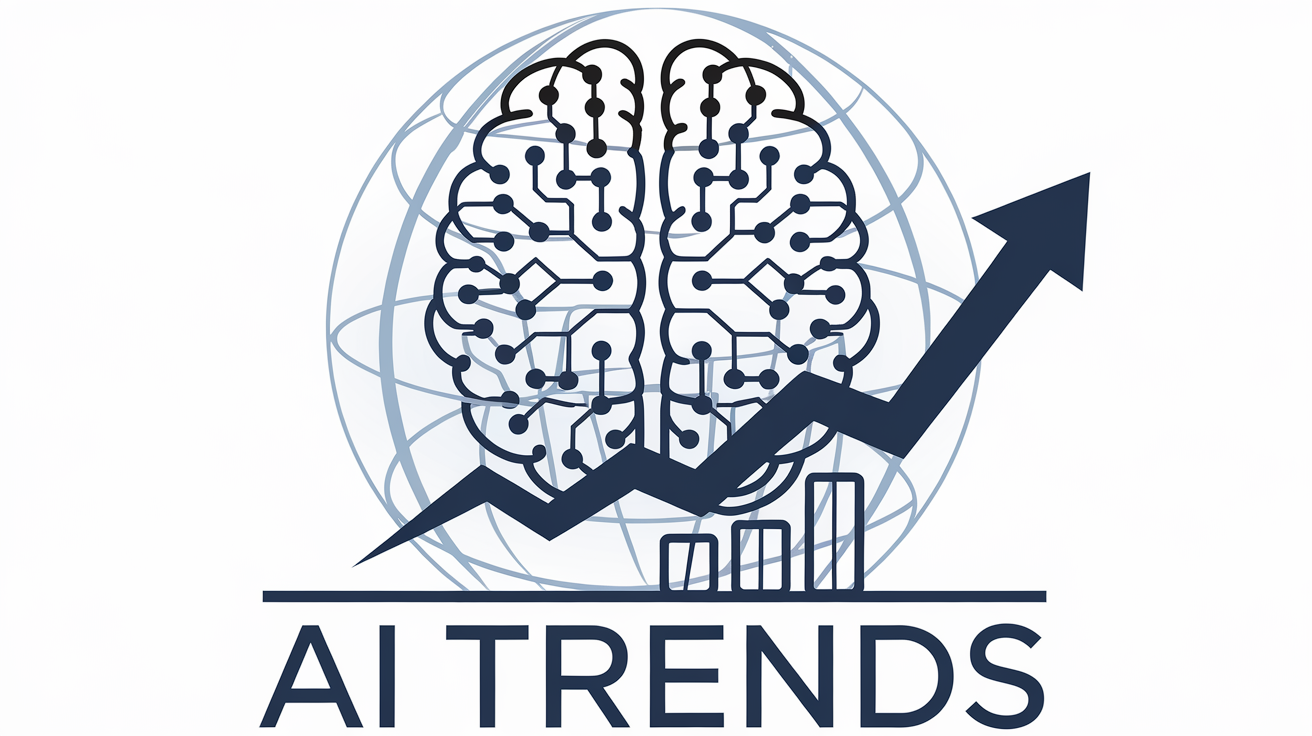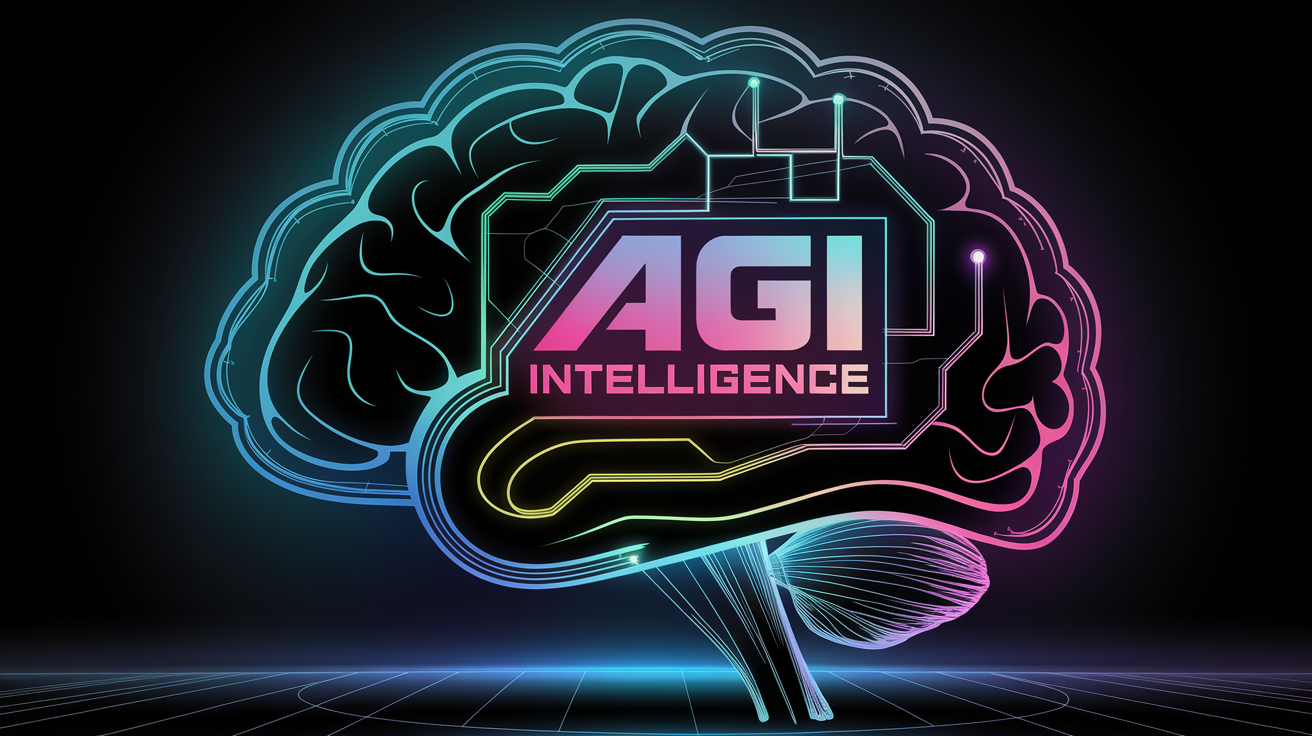AI Predictions for 2030: What the Future Holds
Artificial Intelligence (AI) is evolving at an unprecedented pace, and by 2030, we can expect groundbreaking advancements that will transform industries, economies, and even human interactions. From super-intelligent models to AI-driven creativity, here are 10 bold AI predictions for 2030 that could redefine our world.
1. Artificial General Intelligence (AGI) Will Become a Reality
What is AGI?
Artificial General Intelligence (AGI) refers to AI systems that possess human-like cognitive abilities, including reasoning, problem-solving, creativity, and learning across multiple domains. Unlike Narrow AI, which excels at specific tasks (e.g., chatbots, recommendation systems), AGI will be able to generalize knowledge and apply it to new, unfamiliar problems—just like a human would.
How Will AGI Emerge?
The development of AGI will likely result from advancements in several key areas:
- Deep Learning & Neural Networks: More sophisticated AI models with enhanced learning capabilities.
- Massive Data & Computing Power: Supercomputers and quantum computing will accelerate AI training.
- Neuroscience Integration: Understanding human brain functions to replicate intelligence in machines.
- Autonomous Self-Learning: AI systems that improve without human intervention.
Impacts of AGI
- Revolutionizing Industries: AGI will outperform humans in complex tasks such as medical diagnostics, scientific discoveries, and financial predictions.
- Workforce Disruption: Many jobs may be automated, but new career opportunities will emerge in AI governance and ethics.
- Enhanced Creativity & Innovation: AI-generated research, music, and art will push creative boundaries.
- Ethical & Security Concerns: The potential for AI to act independently raises questions about control, safety, and decision-making transparency.
Challenges in AGI Development
- AI Alignment: Ensuring AGI aligns with human values and intentions.
- Computational Resources: AGI will require immense processing power and energy consumption.
- Regulatory Frameworks: Governments will need strict policies to prevent misuse and ensure ethical AI deployment.
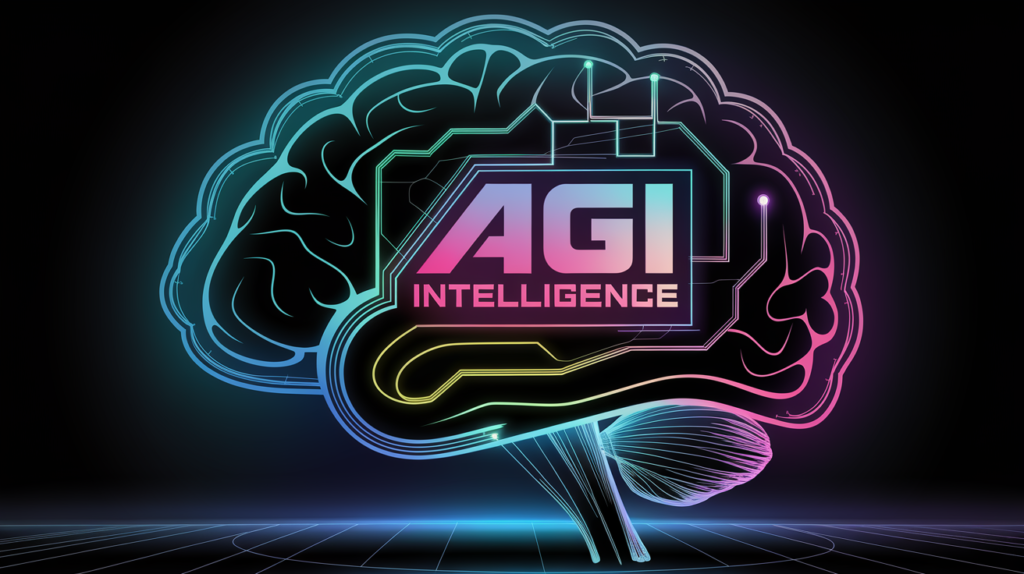
2. AI-Powered Autonomous Systems Will Dominate Transportation
The Rise of Autonomous Transportation
By 2030, AI-driven autonomous systems will revolutionize transportation across land, air, and sea. Self-driving vehicles, AI-controlled drones, and autonomous ships will improve efficiency, safety, and sustainability, reducing human intervention in mobility.
Key Technologies Driving Autonomous Transportation
- Advanced Machine Learning & Computer Vision – AI will process real-time data from sensors, cameras, and LiDAR to navigate safely.
- 5G & Edge Computing – High-speed connectivity will enable instant decision-making in autonomous networks.
- AI-Powered Traffic Management – AI will optimize traffic flow, reducing congestion and travel times.
- Electric & AI-Integrated Vehicles – Smart, self-learning EVs will become the standard for urban mobility.
Applications of AI in Transportation
- Autonomous Cars & Trucks: AI-powered self-driving cars (Tesla, Waymo) and autonomous trucking (Einride, Aurora) will dominate roads, reducing accidents caused by human error.
- AI-Driven Public Transport: Smart buses, trains, and ride-sharing services will adjust routes dynamically based on demand and traffic conditions.
- AI-Powered Drones & Delivery Bots: Companies like Amazon and Wing are already testing AI-driven drone deliveries, ensuring faster and more efficient logistics.
- Autonomous Ships & Aircraft: AI-powered ships will optimize cargo transportation, and pilotless planes will enhance safety in commercial aviation.
Benefits of AI in Transportation
✔ Increased Safety: AI eliminates human-related errors, significantly reducing accidents.
✔ Traffic Optimization: AI-driven systems will manage congestion, minimizing delays.
✔ Reduced Costs: Automation will lower fuel consumption and operational costs.
✔ Sustainability: AI will help optimize fuel efficiency and promote electric vehicle adoption.
Challenges & Ethical Considerations
Public Trust & Adoption: Many people still hesitate to fully trust AI-driven vehicles.
Regulatory Hurdles: Governments must establish laws and policies to ensure safe AI deployment.
Cybersecurity Risks: AI-powered transportation will require strong protection against hacking threats.
Job Displacement: Automation may replace jobs in trucking, taxi services, and logistics.
3. AI-Generated Content Will Rival Human Creativity
The Rise of AI in Creative Fields
By 2030, AI-generated content will be nearly indistinguishable from human-created works, transforming industries like writing, art, music, and entertainment. Advanced generative AI models will compose original literature, produce stunning visual art, create music, and even script movies with emotional depth and nuance.
Key Technologies Behind AI-Generated Creativity
- Natural Language Processing (NLP): AI models like GPT-4 and future iterations will generate complex narratives, poetry, and scripts with human-like fluency.
- Generative Adversarial Networks (GANs): AI will create hyper-realistic images, paintings, and videos by learning from vast datasets.
- Deep Learning in Music Composition: AI tools like AIVA and OpenAI’s Jukebox will compose symphonies and soundtracks tailored to human emotions.
- AI in Filmmaking & Animation: AI will assist in scriptwriting, scene generation, and even digital actors, reducing production costs and time.
AI’s Role in Different Creative Industries
- Writing & Journalism: AI will generate blog posts, news articles, and even novels, adapting to different writing styles and tones.
- Visual Arts & Design: AI-generated paintings and graphic designs will challenge traditional artistry, leading to a fusion of human-AI collaboration.
- Music & Sound Design: AI will create entire albums, film scores, and personalized playlists based on listener preferences.
- Film & Gaming: AI will write interactive scripts, generate realistic characters, and design immersive game worlds dynamically.
Benefits of AI-Generated Creativity
✔ Faster Content Production: AI will accelerate creative workflows, allowing for rapid content generation.
✔ Cost Reduction: AI will lower the costs of producing high-quality content in films, music, and writing.
✔ Personalization: AI will tailor content to individual preferences, enhancing user engagement.
✔ Infinite Creativity: AI will explore artistic styles and combinations beyond human limitations.
Challenges & Ethical Considerations
AI Bias in Content Creation: AI models may reflect cultural biases present in their training data, impacting diversity in creative fields.
Originality vs. Replication: AI learns from existing works, raising concerns about plagiarism and copyright infringement.
Loss of Human Jobs: AI may replace traditional creative roles in writing, design, and music production.
Authenticity & Emotional Depth: While AI can mimic human creativity, can it truly understand emotions and originality?

4. AI-Driven Healthcare Will Revolutionize Medicine
The Future of AI in Healthcare
By 2030, AI will play a transformative role in medicine, improving diagnostics, treatment plans, patient care, and drug development. AI-powered systems will enhance efficiency, reduce human errors, and make healthcare more accessible and personalized than ever before.
Key AI Technologies Driving Medical Innovation
- Machine Learning in Diagnostics: AI will analyze vast datasets to detect diseases at early stages with higher accuracy than human doctors.
- Robotic Surgery: AI-powered robots will assist or even perform complex surgeries with precision and minimal invasiveness.
- AI-Powered Drug Discovery: AI will accelerate pharmaceutical research, identifying new drugs and treatments in record time.
- Personalized Medicine: AI will tailor treatments based on individual genetic data, lifestyle, and health history.
- Wearable AI Health Monitoring: Smart devices will continuously track vital signs, alerting users and doctors to potential health risks.
Applications of AI in Healthcare
- Early Disease Detection: AI will detect conditions like cancer, Alzheimer’s, and cardiovascular diseases before symptoms appear, allowing for early intervention.
- AI in Radiology & Imaging: AI-powered analysis of X-rays, MRIs, and CT scans will improve accuracy and reduce misdiagnosis.
- AI Chatbots & Virtual Health Assistants: AI-driven chatbots will provide 24/7 medical advice, reducing the burden on healthcare professionals.
- Predictive Analytics & Preventive Care: AI will analyze patient data to predict and prevent illnesses before they occur.
- AI in Mental Health Treatment: AI-driven therapy bots and mood analysis tools will assist in diagnosing and treating mental health conditions.
Benefits of AI in Healthcare
✔ Higher Diagnostic Accuracy: AI will reduce human errors in medical assessments.
✔ Faster Drug Development: AI will significantly cut research time, bringing life-saving drugs to market quicker.
✔ Improved Patient Outcomes: AI will enable more precise, personalized, and timely treatments.
✔ Cost Reduction: AI will lower healthcare costs by automating processes and improving efficiency.
✔ Greater Accessibility: AI-powered telemedicine will provide quality healthcare to remote and underserved areas.
Challenges & Ethical Considerations
Bias in AI Models: AI trained on biased datasets could lead to misdiagnoses and unequal healthcare access.
Data Privacy & Security: AI relies on massive amounts of patient data, raising concerns about privacy and cybersecurity.
Regulatory & Legal Hurdles: Governments must establish frameworks to ensure AI-driven healthcare follows ethical and legal standards.
Doctor-AI Collaboration: While AI can assist, human expertise will remain crucial for complex medical decisions.
5. AI Ethics and Regulations Will Become Critical
The Growing Need for AI Governance
As AI continues to advance, its ethical implications and potential risks will become more significant. By 2030, governments, organizations, and researchers will need to establish clear regulations to ensure AI is used responsibly, fairly, and transparently. Without proper governance, AI could lead to unintended consequences, including bias, discrimination, security threats, and loss of human autonomy.
Key Ethical Concerns in AI Development
- AI Bias & Discrimination: AI models trained on biased data can reinforce and amplify existing social inequalities, affecting hiring processes, law enforcement, and medical diagnoses.
- Privacy & Data Security: AI-driven systems rely on massive amounts of personal data, raising concerns about surveillance, unauthorized data usage, and breaches.
- Autonomous Decision-Making: AI systems making critical decisions—such as in healthcare, finance, or criminal justice—must be explainable and accountable.
- AI in Warfare & Surveillance: The use of AI in autonomous weapons and mass surveillance presents ethical dilemmas regarding human rights and warfare rules.
- Job Displacement & Economic Inequality: AI-driven automation could replace jobs, increasing unemployment and economic disparity if not properly managed.
Regulatory Efforts & Proposed Solutions
Governments and global organizations are actively working on AI regulations to prevent unethical practices and misuse. Key strategies include:
- AI Transparency & Explainability: Requiring AI models to provide clear explanations for their decisions.
- Data Protection Laws: Strengthening laws like GDPR (General Data Protection Regulation) to ensure responsible AI data usage.
- Bias Audits & Fairness Standards: Implementing regular assessments to detect and mitigate bias in AI algorithms.
- Ethical AI Frameworks: Establishing principles such as the EU’s AI Act and UNESCO’s AI Ethics Guidelines to govern AI development and deployment.
- Human Oversight: Ensuring that AI systems always involve human intervention in critical decisions, such as hiring, medical treatments, or legal judgments.
Challenges in AI Ethics & Regulation
Accountability Issues: Determining responsibility when AI systems make errors remains a complex legal challenge.
Global AI Standards: Different countries have varying AI policies, making global cooperation difficult.
Balancing Innovation & Regulation: Overregulation could slow AI advancements, while lack of regulation could lead to harm.
AI’s Rapid Evolution: AI technology is evolving faster than regulatory bodies can adapt, creating gaps in governance.
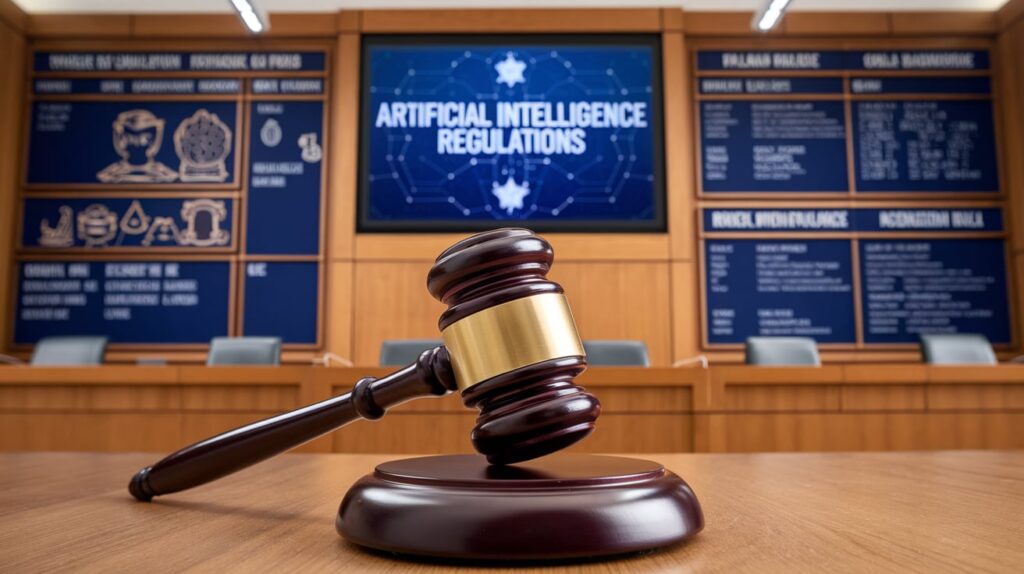
6. AI Will Transform Education With Personalized Learning
The Future of AI in Education
By 2030, AI will revolutionize education by making learning more personalized, adaptive, and accessible than ever before. AI-powered systems will cater to individual learning styles, provide real-time feedback, and help educators optimize their teaching strategies. This transformation will create a student-centric approach, where learning adapts to the needs of each individual, rather than following a rigid, one-size-fits-all curriculum.
Key AI Technologies Transforming Education
- Adaptive Learning Platforms
- AI-driven platforms (such as DreamBox, Squirrel AI, and Carnegie Learning) will analyze students’ progress and tailor lessons to match their strengths and weaknesses.
- These platforms will adjust difficulty levels dynamically, ensuring optimal engagement and retention.
- AI-Powered Tutoring Systems
- Intelligent tutoring systems (ITS) will act as 24/7 virtual tutors, helping students understand complex subjects with real-time explanations and interactive exercises.
- These AI tutors will identify knowledge gaps and provide customized recommendations for further study.
- Natural Language Processing (NLP) & AI Chatbots
- AI chatbots will answer students’ queries instantly, simulate discussions, and provide writing feedback using NLP.
- They will help students develop critical thinking skills by engaging in interactive Q&A sessions.
- AI-Driven Gamification & Engagement
- AI will gamify learning experiences, making education more interactive and engaging through personalized quizzes, simulations, and virtual rewards.
- Augmented Reality (AR) and Virtual Reality (VR) combined with AI will create immersive educational experiences in subjects like history, science, and engineering.
- Automated Assessment & Grading
- AI will grade assignments, quizzes, and even essays using machine learning, saving teachers valuable time.
- AI-driven grading will eliminate human biases and ensure fair assessments.
- Predictive Analytics for Student Success
- AI will analyze students’ performance trends and predict learning difficulties, allowing teachers to intervene early and offer targeted support.
- Schools and universities will use AI to reduce dropout rates and improve academic outcomes.
- AI-Powered Personalized Learning Paths
- AI will create individualized learning plans based on a student’s interests, cognitive abilities, and career goals.
- Learning experiences will be adjusted in real time, ensuring maximum comprehension and progress.
Benefits of AI in Education
✔ Personalized Learning: Every student will receive customized instruction suited to their learning pace and style.
✔ Increased Accessibility: AI-powered tools will help students with disabilities through speech-to-text, real-time translations, and adaptive learning resources.
✔ Reduced Teacher Workload: Automated grading and AI-driven tutoring will allow educators to focus on mentorship and human interaction.
✔ Data-Driven Decision Making: Schools will use AI insights to optimize curricula, identify struggling students, and improve educational policies.
✔ Lifelong Learning & Career Adaptability: AI will support continuous skill development, helping individuals stay relevant in a rapidly changing job market.
Challenges & Ethical Considerations
Teacher-AI Collaboration: AI should act as an assistant to educators, not a replacement, ensuring that learning remains holistic and human-centered.
Data Privacy & Security: AI-driven education platforms will collect vast amounts of student data, raising concerns about privacy, data security, and ethical AI use.
Equity & Accessibility: Not all schools will have equal access to AI tools, potentially widening the digital divide between wealthy and underprivileged students.
Over-Reliance on AI: While AI will enhance education, human teachers will still be irreplaceable for emotional intelligence, creativity, and social development.
Bias in AI Algorithms: If not designed carefully, AI models may reinforce biases, affecting grading fairness and student evaluations.
7. AI Will Redefine Cybersecurity

The Cybersecurity Battlefield of the Future
By 2030, AI will completely redefine cybersecurity, ushering in an era where AI-driven defenses counteract AI-powered cyber threats in a constant battle for digital security. With cyberattacks becoming more sophisticated, autonomous, and faster than ever, AI will be the key force protecting organizations, governments, and individuals from large-scale cyber warfare.
How AI Will Revolutionize Cybersecurity
- Autonomous Threat Detection & Response
- AI will predict, identify, and neutralize cyber threats in real time, preventing breaches before they occur.
- Instead of relying on predefined security rules, AI will use self-learning models to detect anomalies instantly.
- AI vs. AI Warfare: The Rise of Intelligent Cyberattacks
- Hackers will use AI to create autonomous malware, which adapts and evolves to bypass security protocols.
- AI-powered cybersecurity will counteract these threats by deploying self-repairing systems that detect and neutralize attacks before they cause damage.
- Quantum AI for Unbreakable Encryption
- By 2030, quantum computing will pose a serious risk to traditional encryption, making current security methods obsolete.
- AI will develop post-quantum cryptography that is resistant to quantum attacks, ensuring secure data transmission.
- Behavioral Biometrics & AI Authentication
- Passwords will be completely replaced by AI-driven biometric security, such as keystroke dynamics, voice recognition, and even subconscious behavioral patterns.
- AI will detect suspicious login attempts in milliseconds, preventing unauthorized access without disrupting user experience.
- AI-Powered Cybersecurity Command Centers
- Governments and corporations will deploy AI-driven cybersecurity hubs that monitor global cyber threats in real time.
- These centers will use predictive analytics to anticipate attacks before they happen, safeguarding critical infrastructure, financial systems, and defense networks.
- AI-Driven Phishing & Deepfake Defense
- AI-generated deepfake scams will be indistinguishable from reality, posing a serious security threat.
- AI security tools will use advanced forensic detection models to differentiate real from fake, preventing misinformation, fraud, and identity theft.
- Zero-Trust AI Security Models
- AI will enable Zero-Trust Architecture (ZTA), meaning no device, user, or network is trusted by default.
- Every action will be verified dynamically in real time, reducing the risk of insider threats and unauthorized access.
The Benefits of AI-Driven Cybersecurity
✔ Faster Threat Response: AI will react to cyber threats in milliseconds, preventing large-scale breaches.
✔ Proactive Security Measures: AI will predict and neutralize attacks before they happen.
✔ Self-Healing Systems: AI-driven infrastructure will auto-repair vulnerabilities, minimizing downtime and risks.
✔ Scalability: AI security tools will adapt to new threats as they evolve, making cyber defenses future-proof.
✔ Enhanced Privacy & Data Protection: AI will ensure compliance with global cybersecurity laws, protecting user data from unauthorized access.
Challenges & Ethical Considerations
Quantum Threats: Quantum computing could break traditional encryption, requiring AI to develop quantum-resistant security solutions.
AI-Powered Cybercrime: Cybercriminals will weaponize AI, creating autonomous hacking systems that can bypass traditional defenses.
False Positives & AI Bias: AI-driven security models may misclassify legitimate users as threats, causing disruptions in business and critical services.
Global AI Arms Race: Countries may engage in AI-powered cyber warfare, targeting national infrastructures and private organizations.
Lack of Human Oversight: AI automation in cybersecurity must be carefully monitored to prevent errors and unintended consequences.
8. AI-Powered Assistants Will Become Essential
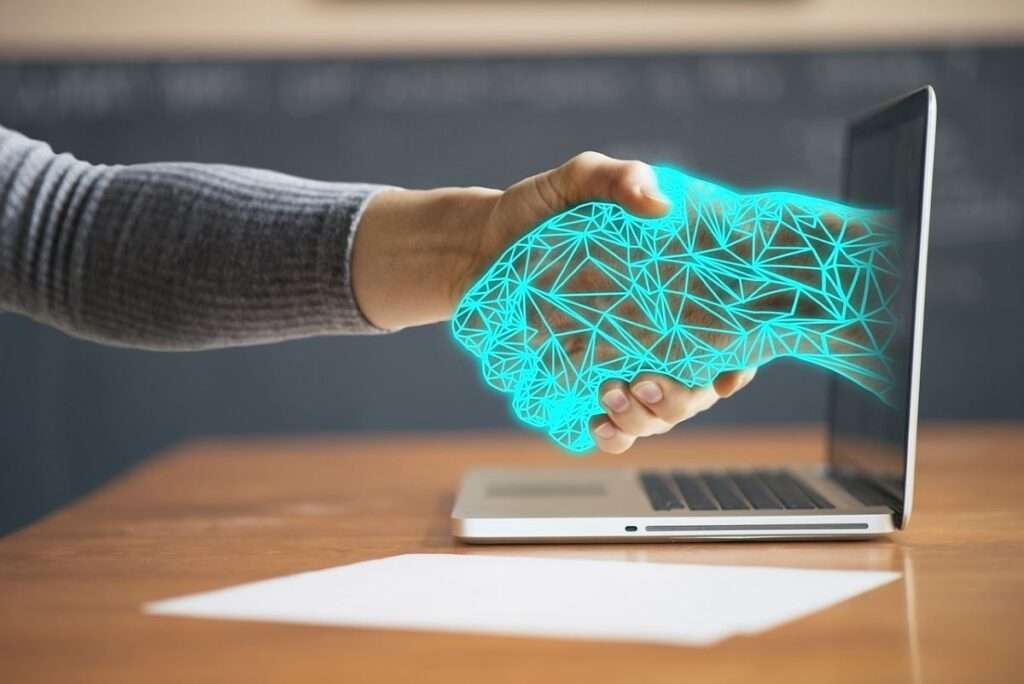
The Evolution of AI Assistants
By 2030, AI-powered assistants will transition from simple voice-activated helpers to indispensable digital companions that seamlessly manage our daily lives, work, and personal affairs. These AI-driven entities will possess human-like reasoning, contextual awareness, and proactive decision-making capabilities, making them an essential part of both personal and professional environments.
How AI Assistants Will Transform Our Lives
- Hyper-Personalized Digital Assistants
- AI will deeply understand users’ habits, preferences, and routines, offering context-aware suggestions and automating tasks before being asked.
- Instead of responding to basic commands, AI assistants will engage in meaningful, human-like conversations with emotional intelligence.
- AI as a Work Productivity Partner
- AI will act as a real-time executive assistant, handling emails, scheduling, project management, and even decision-making based on real-time data.
- AI-driven meeting summarization and task prioritization will make businesses more efficient.
- AI as a Personal Life Organizer
- AI will manage finances, nutrition, fitness plans, home automation, and even travel planning—learning and adapting to individual needs.
- AI will provide mental health support, detecting emotional patterns and offering guidance through intelligent conversation models.
- Seamless AI Integration Across Devices
- AI will synchronize across smartphones, smart homes, autonomous vehicles, and wearable devices, ensuring continuous, hands-free assistance.
- Future AI assistants will offer a unified experience across multiple platforms, eliminating the need for multiple apps.
- Autonomous AI Agents in Customer Service
- AI assistants will replace traditional customer support with instant, accurate, and empathetic AI-driven interactions.
- Companies will use AI-powered concierge services, handling complex customer queries with near-human fluency.
- AI in Healthcare & Elderly Care
- AI assistants will monitor health conditions, remind users to take medication, and provide remote medical support in real time.
- AI-driven companions for the elderly will reduce loneliness and assist with daily tasks.
- Multi-Modal AI Assistants (Voice, Vision, Text & Gesture-Based Interaction)
- Future AI will process speech, facial expressions, gestures, and written commands simultaneously, making interactions more natural and intuitive.
- AI will anticipate needs based on tone, body language, and even biometric data.
Benefits of AI-Powered Assistants
✔ Time Efficiency: AI will automate repetitive tasks, freeing users to focus on meaningful activities.
✔ Enhanced Decision-Making: AI will provide real-time insights for personal and business choices.
✔ Reduced Cognitive Load: AI will handle information overload, prioritizing only the most relevant data.
✔ Increased Accessibility: AI will assist individuals with disabilities, language barriers, and complex medical needs.
✔ Proactive Assistance: AI will anticipate user needs before they arise, delivering a seamless experience.
Challenges & Ethical Considerations
AI Monetization & Corporate Influence: The control of AI assistants by tech giants could lead to manipulative advertising and biased recommendations.
Privacy & Data Security: AI assistants will handle highly sensitive personal information, requiring robust security measures.
AI Dependence: Over-reliance on AI for decision-making may reduce human critical thinking skills.
Bias & Fairness: AI models must be trained to avoid cultural, gender, and socioeconomic biases in decision-making.
AI Autonomy & Control: Balancing automation and human oversight will be crucial to ensure ethical AI behavior.
9. AI Will Play a Key Role in Climate Change Solutions
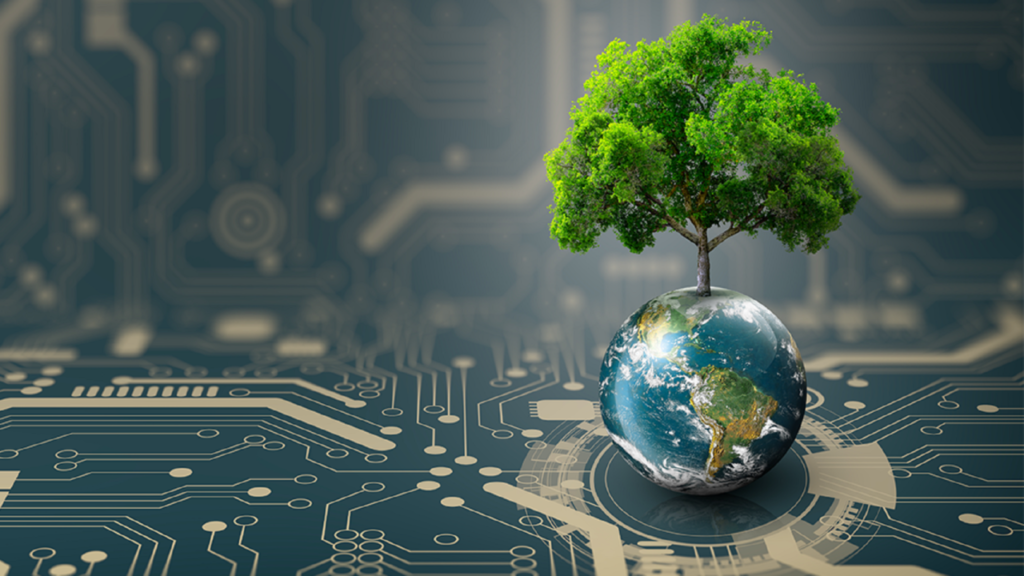
The Climate Crisis & The Need for AI
By 2030, AI will become an indispensable tool in the fight against climate change, providing solutions that are faster, smarter, and more scalable than human-driven efforts alone. From predicting environmental patterns to optimizing renewable energy and reducing carbon footprints, AI will be a driving force behind innovative and impactful climate solutions.
How AI Will Help Combat Climate Change
- AI for Climate Modeling & Extreme Weather Prediction
- AI will process massive datasets from satellites, sensors, and historical climate records to predict hurricanes, droughts, wildfires, and rising sea levels with unprecedented accuracy.
- Advanced AI-driven simulations will help governments and communities prepare for natural disasters before they happen, saving lives and resources.
- AI-Optimized Renewable Energy Systems
- AI will enhance solar and wind energy efficiency by predicting weather patterns and adjusting energy production in real time.
- AI-driven smart grids will distribute electricity more efficiently, reducing energy waste and increasing the use of sustainable power sources.
- Carbon Capture & Emission Reduction Technologies
- AI will accelerate carbon capture research, identifying the most effective ways to remove CO₂ from the atmosphere and store it safely.
- AI-driven industrial automation will optimize factories, supply chains, and transportation, reducing carbon emissions significantly.
- AI for Smart Agriculture & Sustainable Farming
- AI-powered precision farming will reduce water usage, fertilizer waste, and deforestation by analyzing soil health and predicting crop yields.
- Smart AI sensors will detect pest infestations and plant diseases early, reducing the need for harmful pesticides and boosting global food security.
- AI in Deforestation Prevention & Wildlife Conservation
- AI-powered satellite imagery analysis will track illegal logging and deforestation in real time, enabling governments to act quickly.
- AI-driven drones and monitoring systems will protect endangered species by tracking poaching activity and habitat destruction.
- AI-Powered Sustainable Urban Planning
- AI will design eco-friendly smart cities, optimizing traffic flow, energy consumption, and waste management to reduce carbon footprints.
- AI-driven green infrastructure modeling will help build cities that are climate-resilient, energy-efficient, and sustainable.
- AI for Corporate Sustainability & ESG Compliance
- AI will analyze supply chains and corporate sustainability efforts, ensuring that companies comply with Environmental, Social, and Governance (ESG) policies.
- AI-powered carbon tracking tools will enable businesses to measure, reduce, and offset their emissions more effectively.
Benefits of AI in Climate Change Solutions
✔ Faster Decision-Making: AI can analyze billions of data points in seconds, enabling real-time climate action.
✔ Optimized Resource Use: AI will reduce waste by maximizing efficiency in agriculture, energy, and urban planning.
✔ Early Warnings & Disaster Prevention: AI-driven models will help predict and mitigate the impact of climate-related disasters.
✔ Scalable Solutions: AI-powered climate strategies can be implemented globally, regardless of economic or geographic barriers.
✔ Cost Reduction: AI will lower the costs of renewable energy, carbon capture, and sustainable infrastructure, making green solutions more accessible.
Challenges & Ethical Considerations
AI & Policy Integration: Governments will need to create regulations and global policies to ensure AI is used ethically in climate action.
Energy Consumption of AI Models: AI requires significant computational power, and if not optimized, could contribute to higher energy consumption.
Data Bias & Reliability: AI models depend on historical data, which may contain inaccuracies or biases, leading to flawed predictions.
Equitable Access to AI Solutions: Developing nations may face technological and financial barriers in adopting AI-driven climate solutions.
Corporate Greenwashing: Companies may misuse AI climate data to appear sustainable without making real environmental changes.
10. AI and Quantum Computing Will Unlock New Possibilities
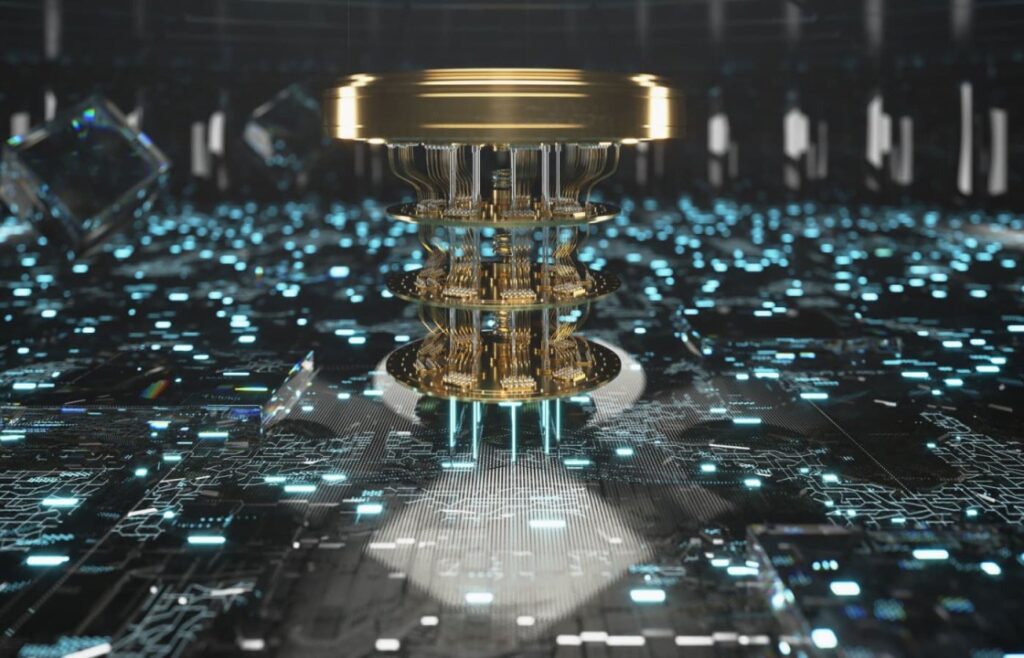
The Convergence of AI and Quantum Computing
By 2030, the combination of Artificial Intelligence (AI) and Quantum Computing will revolutionize problem-solving, unlocking possibilities that were previously unimaginable. While AI has already transformed industries through machine learning and automation, quantum computing will provide the computational power needed to exponentially accelerate AI capabilities. This synergy will lead to breakthroughs in drug discovery, materials science, cryptography, finance, and much more.
How AI and Quantum Computing Will Transform the World
- Revolutionizing Drug Discovery & Medical Research
- Quantum-powered AI will simulate molecular interactions at an atomic level, dramatically reducing the time and cost of discovering new drugs and treatments.
- AI-driven quantum simulations will help design personalized medicine, predicting how individual patients will respond to specific treatments.
- Unbreakable Quantum Cryptography & Cybersecurity
- Quantum computing will render traditional encryption obsolete, but AI-powered post-quantum cryptography will develop new, unbreakable security protocols.
- AI will work alongside quantum encryption to secure global communications, financial transactions, and sensitive data against cyber threats.
- Ultra-Optimized Supply Chains & Logistics
- AI combined with quantum algorithms will solve complex logistical problems in real time, optimizing global supply chains, transportation routes, and inventory management.
- Businesses will experience faster deliveries, lower costs, and reduced environmental impact through AI-powered quantum logistics.
- Accelerating Scientific Discoveries & Material Science
- Quantum AI will model new materials and chemical compounds, leading to breakthroughs in superconductors, nanotechnology, and renewable energy solutions.
- AI-driven quantum simulations will allow scientists to discover materials with unprecedented properties for use in batteries, electronics, and construction.
- Transforming Artificial Intelligence & Machine Learning
- Quantum computing will allow AI models to process data at speeds millions of times faster than classical computers.
- AI training times will be reduced from months to hours, enabling the development of more advanced, self-learning AI systems.
- Revolutionizing Climate Change Solutions
- AI-powered quantum simulations will accurately model climate systems, helping scientists predict and mitigate climate change effects with unmatched precision.
- Quantum AI will optimize renewable energy systems, improving solar panel efficiency, wind turbine placement, and energy grid management.
- Transforming Financial Markets & Economic Forecasting
- AI-driven quantum models will analyze market trends, economic fluctuations, and investment strategies at speeds beyond human capabilities.
- Financial institutions will use quantum AI to develop risk-free trading algorithms, fraud detection systems, and highly accurate financial predictions.
- Advancing Space Exploration & Astrophysics
- AI and quantum computing will simulate cosmic events, analyze astronomical data, and predict planetary conditions with unparalleled accuracy.
- Space agencies will use quantum AI to optimize spacecraft trajectories, identify habitable exoplanets, and decode the mysteries of dark matter and black holes.
The Benefits of AI-Quantum Synergy
✔ Exponential Speed & Efficiency: Quantum computing will make AI millions of times faster, enabling instant data analysis and decision-making.
✔ Unprecedented Problem-Solving: AI will tackle problems too complex for classical computers, leading to groundbreaking discoveries.
✔ Revolutionized Security & Encryption: AI-powered quantum cryptography will ensure unbreakable cybersecurity.
✔ Advancements in Medicine & Science: Quantum AI will accelerate drug discovery, disease prevention, and material science.
✔ Sustainable & Green Innovations: AI-driven quantum models will optimize climate solutions, renewable energy, and resource efficiency.
Challenges & Ethical Considerations
AI Bias at Quantum Scale: Quantum AI models must be carefully trained to avoid biases and ensure fair and ethical decision-making.
Quantum AI Arms Race: Nations and corporations will compete for quantum AI dominance, leading to potential geopolitical tensions and security risks.
Accessibility & Inequality: The immense cost of quantum AI could lead to a technological divide, where only a few entities control its power.
AI & Quantum Ethics: Quantum AI must be developed responsibly, ensuring it is not used for malicious purposes such as autonomous cyberwarfare or financial manipulation.
Disruptive Impact on Industries: Many existing encryption methods, economic models, and traditional computing approaches will become obsolete.
Final Thoughts
By 2030, Artificial Intelligence will be the driving force behind some of the most profound technological transformations humanity has ever witnessed. From reshaping industries to solving complex global challenges, AI will no longer be a tool—it will become an integral part of society, influencing every aspect of our lives.
Artificial General Intelligence (AGI) Will Become a Reality
AI will transcend narrow-task capabilities, achieving human-like intelligence that can reason, learn, and adapt across multiple domains. This breakthrough will redefine the workforce, education, and innovation, but also raise ethical dilemmas regarding control, decision-making, and human-AI coexistence.
AI-Powered Autonomous Systems Will Dominate Transportation
Self-driving vehicles, AI-managed public transport, and autonomous drones will revolutionize mobility, making transportation safer, faster, and more efficient. AI-driven traffic management will reduce congestion, while smart logistics will optimize supply chains. However, ensuring cybersecurity and ethical deployment will be key.
AI-Generated Content Will Rival Human Creativity
AI will create movies, music, books, and digital art with human-level originality, challenging our perception of creativity and intellectual property. Businesses will rely on AI-driven content for marketing, journalism, and entertainment, but the rise of deepfakes and AI plagiarism will necessitate new regulations and ethical boundaries.
AI-Driven Healthcare Will Revolutionize Medicine
AI will power real-time disease detection, personalized treatments, and robotic-assisted surgeries, improving health outcomes and accessibility. AI-driven drug discovery will accelerate cures for major diseases, while predictive analytics will enable early diagnosis and preventive care. However, ensuring data privacy, fairness, and AI transparency will be critical.
AI Ethics and Regulations Will Become Critical
As AI takes on decision-making roles, ethical concerns around bias, privacy, and accountability will demand global regulations. Governments will need to balance innovation with control, preventing AI misuse in surveillance, warfare, and social manipulation. Establishing clear AI governance frameworks will be essential to ensure fairness and trust.
AI Will Transform Education With Personalized Learning
AI-driven adaptive learning systems will tailor education to each student’s strengths and weaknesses, making learning more efficient and accessible. AI-powered tutors will bridge educational gaps, but concerns about data privacy, teacher displacement, and algorithmic bias must be addressed to create equitable learning environments.
AI Will Redefine Cybersecurity
Cyber threats will become more sophisticated, but AI will be the ultimate defense, detecting anomalies, preventing fraud, and neutralizing cyberattacks before they occur. However, AI-driven hacking techniques will also challenge cybersecurity experts, leading to an ongoing battle between AI-based security and AI-powered threats.
AI-Powered Assistants Will Become Essential
AI assistants will evolve from simple voice-activated helpers to hyper-intelligent digital companions, managing our schedules, personalizing experiences, and anticipating our needs. AI will assist in mental health, finance, and productivity, but over-reliance on AI may raise concerns about human agency and decision-making autonomy.
AI Will Play a Key Role in Climate Change Solutions
AI will become a key ally in fighting climate change, optimizing renewable energy, predicting weather patterns, and reducing carbon footprints. AI-driven simulations will guide sustainable urban planning and agriculture, but challenges related to energy consumption, AI accessibility, and corporate accountability must be addressed.
AI and Quantum Computing Will Unlock New Possibilities
The fusion of AI and Quantum Computing will redefine problem-solving, enabling breakthroughs in medicine, cybersecurity, finance, and space exploration. Quantum-powered AI will solve previously unsolvable problems, but ethical concerns, accessibility, and the geopolitical AI arms race will shape how this technology is deployed.
Final Thoughts: A Future Defined by AI
By 2030, AI will be more than just an advanced technology—it will be an intrinsic part of our daily lives, industries, and decision-making systems. While its potential is limitless, so are its risks. The key challenge will be to develop AI responsibly, ensuring that it serves humanity’s best interests while avoiding unintended consequences.
The future of AI is not just about innovation—it’s about how we, as a society, choose to shape and regulate it. Will AI be a tool for empowerment and progress, or will it spiral into uncontrolled complexity and ethical dilemmas? The choices we make today will determine the world of tomorrow. 🌍🚀🤖
Read also: AI for Beginners: How to Use Artificial Intelligence in Everyday Life
